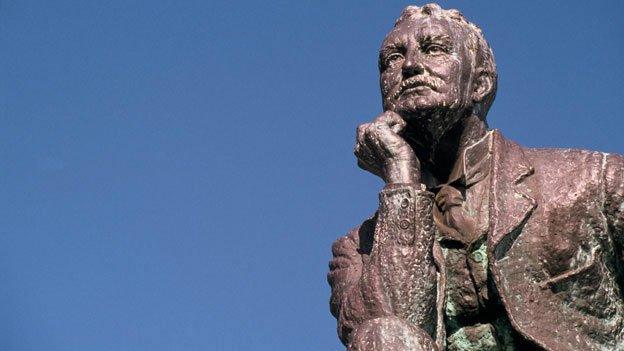Cecil Rhodes: Oxford lecturers boycott Oriel College over statue decision
- Published
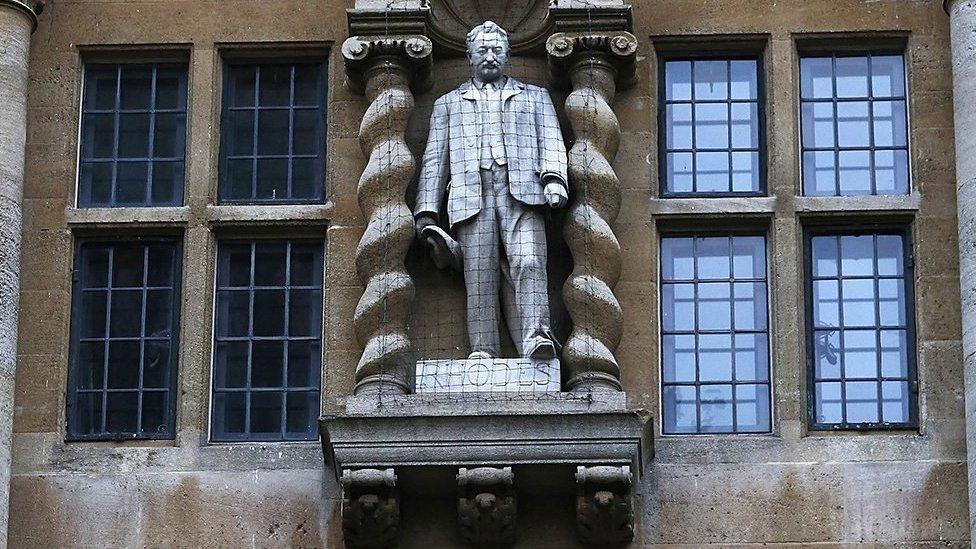
Calls to remove the memorial were reignited after the Black Lives Matter protests last year
About 150 Oxford University academics are refusing to teach at one of its colleges after it decided to keep its controversial statue of Cecil Rhodes.
For years campaigners have been calling for the statue at Oriel College to go, saying Rhodes stood for white supremacy and racism.
But last month the college decided not to take it down for practical reasons.
Now, some academics are boycotting Oriel and have signed a petition saying the statue "glorifies colonialism".
They are refusing to give tutorials to undergraduates from Oriel or attend talks there, as first reported by the Daily Telegraph, external.
The college expressed "sadness" at the decision, while the head of Oxford University said she was "deeply disappointed".
A No 10 spokesman said the government would expect "appropriate action" to be taken if the teaching of students was disrupted by the dispute, such as providing compensation.
Rhodes was a businessman and politician who played a big role in southern Africa in the 19th Century.
He thought of the English as a master race, and his critics see him as the ultimate representation of colonialism and one of the people who helped pave the way for apartheid.
He had been a student at Oriel, and his statue is now above a doorway of a building named after him.
Oriel's governing body said last year that the majority of its members wished the statue to be removed.
But after an inquiry, the college decided not to remove it due to the cost and complex planning processes.
The Oxford lecturers say the college's decision not to remove the statue "undermines us all", and that the whole university can only work to eradicate racism if all its colleges do so.
'Deeply upsetting'
"Faced with Oriel's stubborn attachment to a statue that glorifies colonialism and the wealth it produced for the college, we feel we have no choice but to withdraw all discretionary work and goodwill collaborations," a statement from the boycott organisers said.
As well as refusing to tutor Oriel students, the dons will also not help the college when it interviews admissions candidates or attend talks sponsored by it.
The boycott does not include work which is not discretionary, such as exams, delivering lecturers and supervising postgraduate students.
The dons said the boycott was done "with regret" but would continue "until Oriel makes a credible public commitment to remove the statue".
Danny Dorling, professor of geography at Oxford and one of the signatories, said: "Having your university associated with a statue of a racist is deeply upsetting and puts a smear on the whole university."
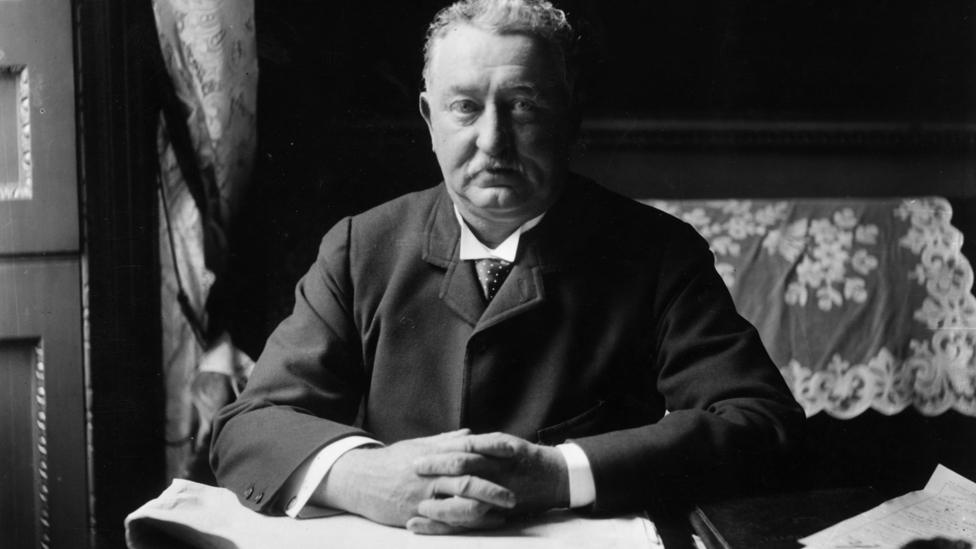
Rhodes was controversial back in Britain even in his own lifetime
But a No 10 spokesman said: "Students rightly expect to get a good deal for their investment in higher education and we would expect universities to take appropriate action should any student be seriously affected by these actions - which could include compensation.
"We fully believe in protecting academic freedom but universities have a duty to maintain access to good-quality tuition as a priority, especially given the disruption the pandemic has caused students already."
Commons Leader Jacob Rees-Mogg said he was "half tempted to say you should be lucky not to be taught by such a useless bunch".
He suggested the academics had not "bothered to look up the history of Rhodes in any detail", describing him as a "figure of importance and of interest and of enormous generosity to Oxford".
"We must not allow this wokeness to happen," he added.
'Utterly unacceptable'
Lord Wharton, chair of the Office for Students, said: "Oriel College took a decision to retain the Rhodes statue after carefully considering all of the evidence.
"It would be utterly unacceptable if any 'boycott' of Oriel led to students, or prospective students, at the college being disadvantaged in any way."
Universities minister Michelle Donelan said: "We fully believe in protecting academic freedom, but universities have a duty to maintain access to good quality tuition as a priority - especially given the disruption the pandemic has caused students."
Regarding the Rhodes statue, she said universities "make their own decisions as autonomous institutions but our position is that a retain-and-explain policy is always best".
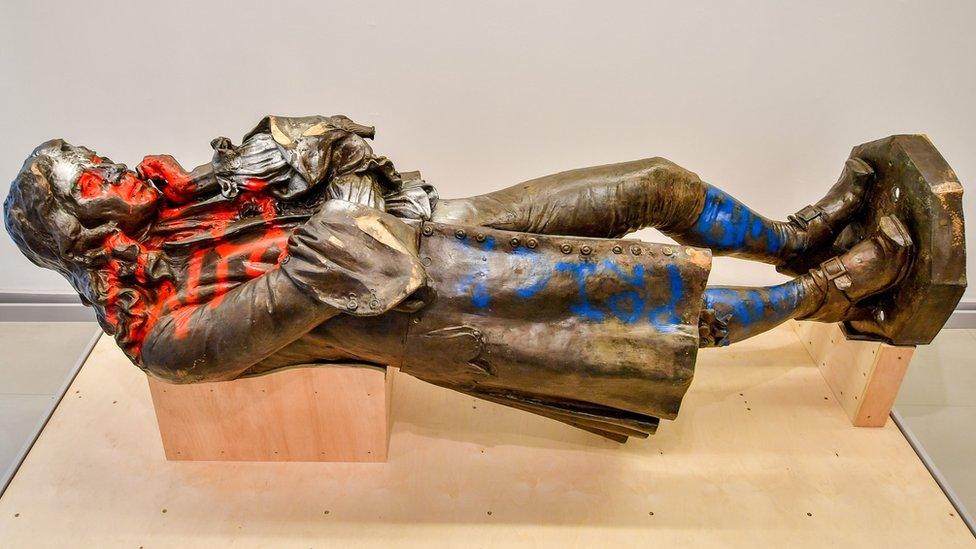
A toppled bronze memorial to the 17th Century slave merchant Colston is on display at a museum in Bristol
There have been some creative ideas of what to do with controversial statues, if they are removed.
Some have suggested just leaving the space empty, while sculptor Antony Gormley proposed, external turning the Rhodes statue to face the wall.
Robert Gildea, one of the academics to sign up to the boycott, told BBC Radio 4's Today programme it was a way of putting pressure on the college after alternative attempts had not worked.
The professor emeritus of modern history at Oxford University said taking no action was "not acceptable".
He added: "If the college put up a notice explaining who Cecil Rhodes was that would be fine, if the college put a placard round his neck at lunchtime today saying 'sorry' that would also be fine."
A graffitied statue of slave trader Edward Colston in Bristol, that was toppled during a Black Lives Matter protest last year, is now on display at a museum.
Any decision to remove the Rhodes statue would require listed building consent from Oxford City Council, Historic England and the secretary of state for local government.
In a statement, the college said it had undertaken "an extensive, academic and rigorous process advised by a 10-month long independent commission of inquiry".
It added: "The commission did not make a recommendation on the removal of memorials.
"We note with sadness that some fellow academics from other colleges at Oxford University have chosen not to respect the decisions of our governing body, not least because of the commensurate impact on our students and the wider academic community at Oriel, to whom we all have a duty of care."
Prof Louise Richardson, vice-chancellor of the University of Oxford, said: "Oxford's brilliant academics are rightly renowned for their dedication to teaching, so I am deeply disappointed that some of my colleagues would choose to punish students, and prospective students, for the actions of their college's governing body, especially after the prolonged disruption of teaching during the pandemic."

FIVE STORIES FROM LGBT HISTORY: A Witness History special 50 years after the Stonewall Riots of 1969
IS THERE A FUTURE WITH CAPITALISM?: Tricky asks whether the system has run its course

- Published4 June 2021

- Published7 June 2021
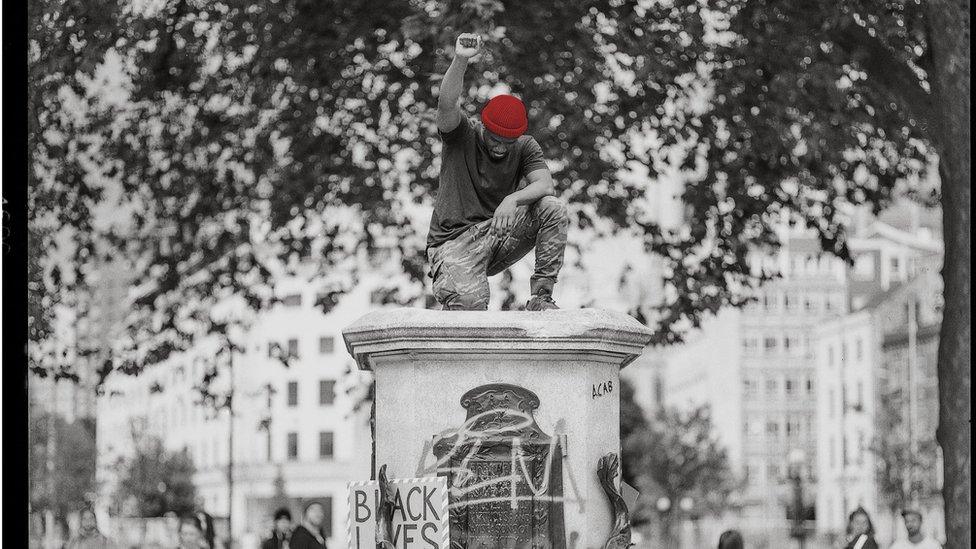
- Published18 June 2020
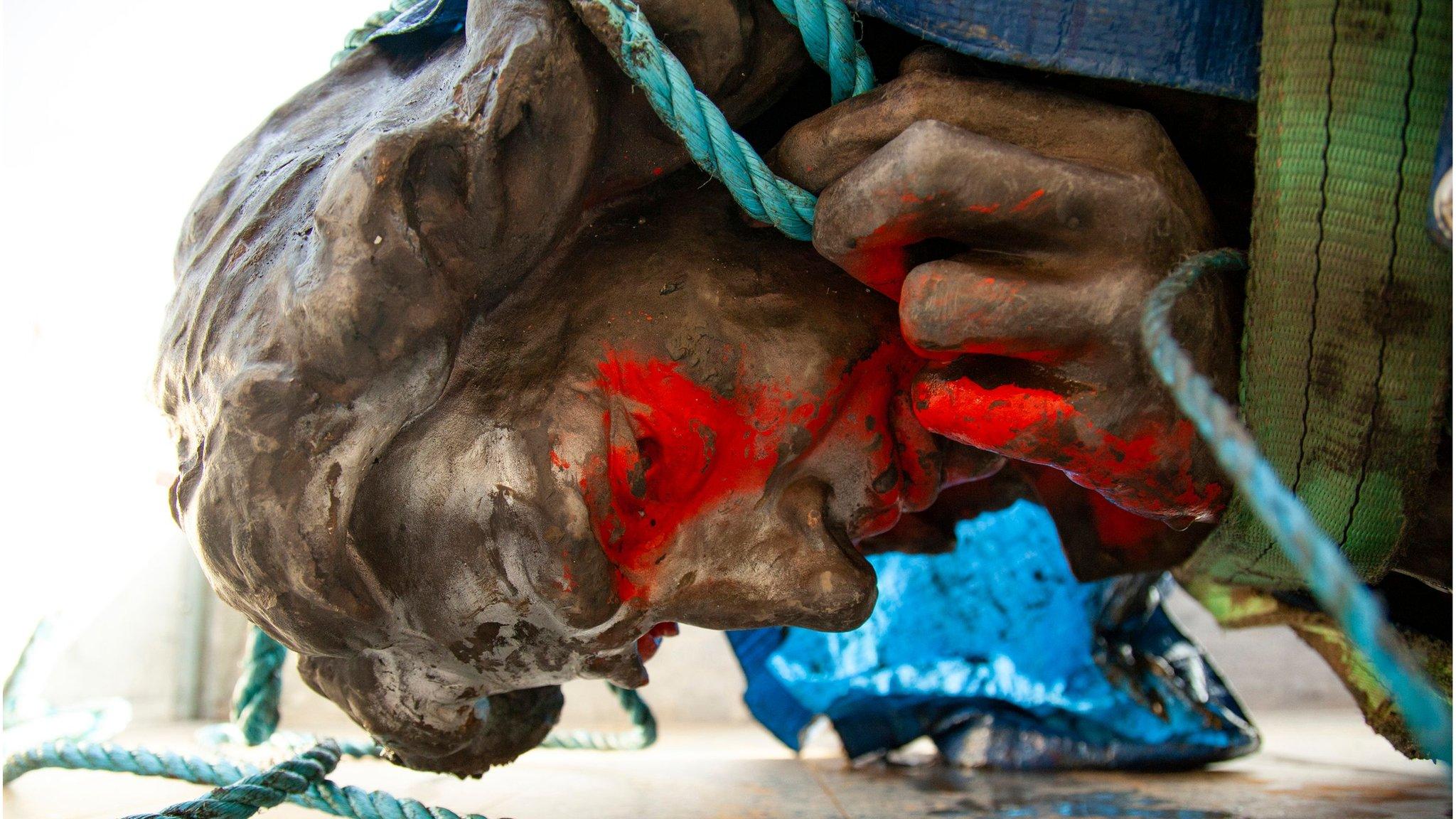
- Published20 May 2021

- Published1 April 2015
